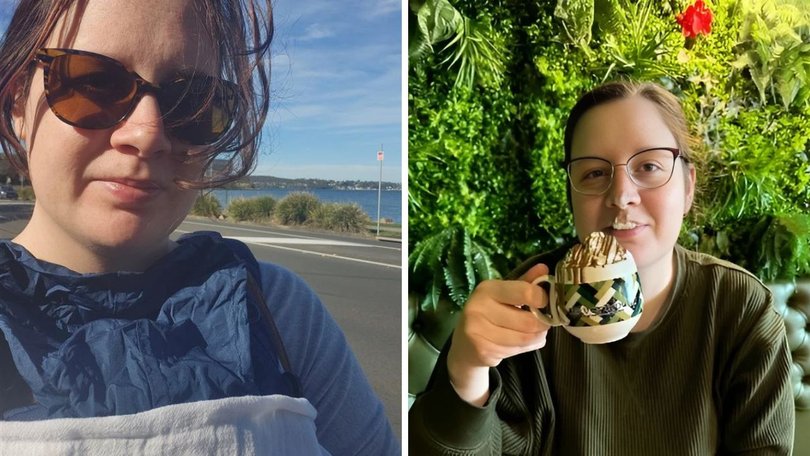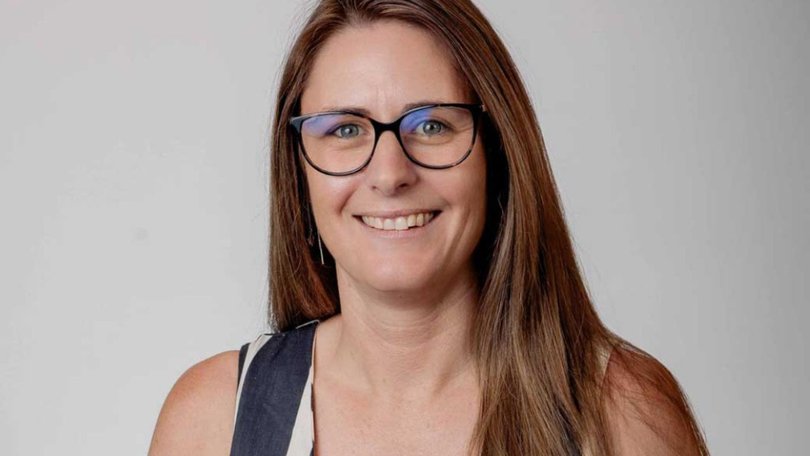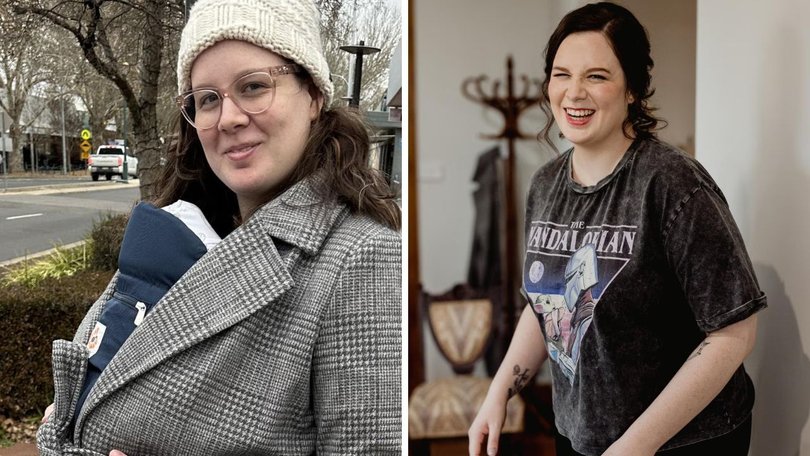Mother opens up on harrowing mental health battle and her endometriosis after giving birth
‘I was promised love, intense love. But as I held her, I felt intense fear.’
For Catie Warden, the moment she first held her newborn should have been pure joy, but instead it brought a fear she never expected.
Warden, 27, is suffering from endometriosis — a chronic condition where tissue like the lining of the uterus grows outside of the womb, causing debilitating pain and sometimes infertility.
Diagnosed after several years of agony, she underwent multiple surgeries before doctors warned her to “have a baby soon” or risk losing her chance to conceive altogether.
Sign up to The Nightly's newsletters.
Get the first look at the digital newspaper, curated daily stories and breaking headlines delivered to your inbox.
By continuing you agree to our Terms and Privacy Policy.“Doctors always said: ‘Try the pill’ ,” Warden said.
“But it wasn’t working. I’d have a week off every month from school because I was in so much pain.”
Warden had her first painful period at 13, but wasn’t diagnosed until she was 20.
“After my second surgery, my surgeon said there was so much endo on my ovaries that if she tried to take it all off, it would be very unlikely I’d be able to have children,” she said.
“So she had to leave some in so I could have a baby. It was very much a timing thing.”
Even after conceiving quickly, the pregnancy brought pain, nausea, and high risks.
By the time her daughter was born, Warden’s long-standing OCD and anxiety had flared so intensely she struggled to hold her baby.
“I was promised love, intense love. But as I held her, I felt intense fear,” Warden said.

Within days, intrusive thoughts overtook her.
Fearing she might never get better, she voluntarily stayed in hospital while her daughter returned home with her husband.
She didn’t see her baby for about three days.
“Those three days apart felt unbearable. If it had been any longer, I don’t think I would have survived,” she said.
Living with family in Parkes, about five hours west of Sydney, Warden and her baby were separated from her husband for three months while he juggled work and their household, so she could focus on her mental health and recovery.
She said meeting another mum who had been through something similar was a turning point.
“She had the same shameful feelings, the same hurt, the same anxieties. It made me feel not alone,” she said.
It was only during her involvement with the Gidget Foundation Warden realised her chronic pain, anxiety, complex PTSD, ADHD, and endometriosis were all connected.
“One of the team said endometriosis has links with mental health, and I thought, ‘Hang on, what?’ Of course it all connects, but I had no idea until recently,” she said.
Clinical Psychologist Katie Peterson from Gidget Foundation Australia told 7NEWS.com.au Warden’s story is far from isolated.
“Chronic health conditions often add an invisible load to carry,” Peterson said.
Early intervention is crucial and healthcare providers should work with women from pre-conception through pregnancy to reduce symptoms and support well-being, Peterson explained.


“Women often require more frequent or longer-term support than the model of care provides,” she said.
For new parents facing similar struggles, Peterson said communication is key.
“We encourage all new parents to start talking. We know the importance of getting timely and appropriate mental health support,” she said.
Warden, now reunited with her family, is determined to raise awareness of the hidden link between reproductive health conditions like endometriosis and perinatal depression and anxiety (PNDA).
Her biggest message to other mums is simple:
“There’s nothing wrong with you. You’re not broken, and you’re not alone. If sharing my story helps one mum speak up sooner, then it’s worth it,” she told 7NEWS.com.au.
If you need help in a crisis, call Lifeline on 13 11 14 or the Kids Helpline 1800 55 1800 (for people aged 5 to 25)
For further information about depression contact beyondblue on 1300 224 636 or talk to your GP, local health professional or someone you trust.
Originally published on 7NEWS
